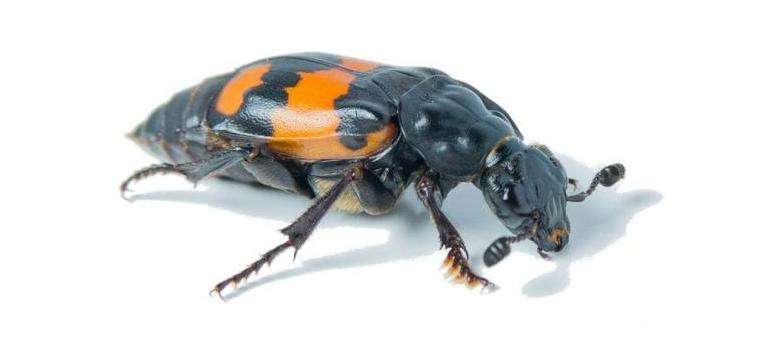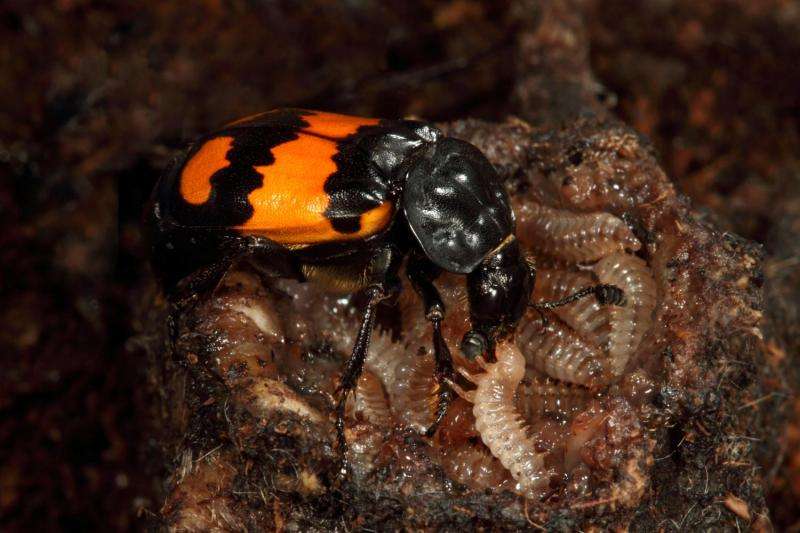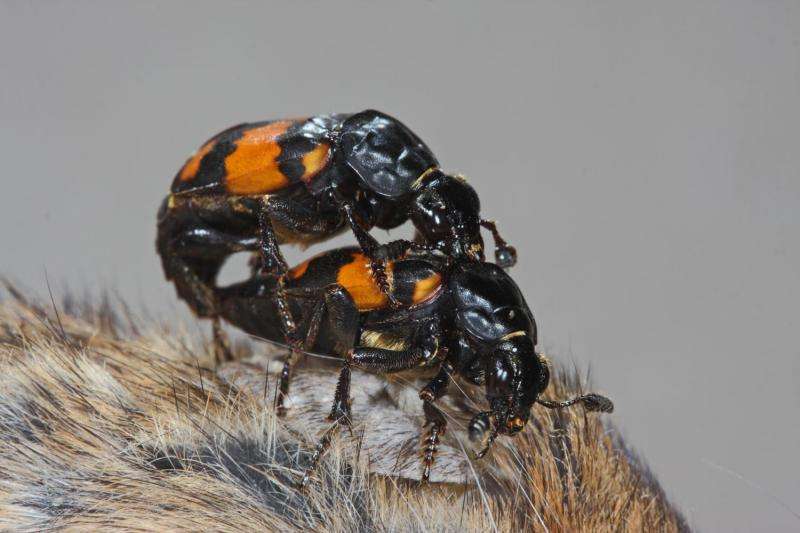March 23, 2016 report
Female burying beetle emits pheromone to ward off male desire during parental care

(Phys.org)—A team of researchers with members from several institutions in Germany has found that the female burying beetle gives off a pheromone during parental care that causes male beetles to temper their sexual advances. In their paper published in the journal Nature Communications, the team describes their study of hundreds of the beetles captured in a German forest and brought to their lab.
Burying beetles lay their eggs in dead animal carcasses—when the young hatch, the mother, and to some extent, the father take bites from the carcass, chew it, and then feed it to the young. They also both fend off predators. Prior research had shown that during this time period the female emits a gas of some sort, and that there was less sexual activity than normal. In this new effort, the researchers sought to learn the properties of the gas and to determine if it was responsible for the decrease in sexual activity, which in turn led to better care for the young. To find out, the team captured approximately 400 of the beetles, split them into groups of those with offspring, and those without, and then ran several experiments and tests on them.
One of the tests involved measuring hormone levels in the females—in so doing, the researchers found that one called 'juvenile hormone III' increased, causing the female to be less fertile during the time she was caring for her young. They also found that she emitted a similar chemical called methyl generate, a pheromone, during the same time frame. Next the team ran several experiments to determine if it was the pheromone that caused the antiaphrodisiac-type effect in males—one of which involved monitoring the release levels of the pheromone and the sexual activity of males when the young were removed from both parents, preventing parental care. They found that the production and emission of the hormone did indeed suppress sexual advances by males, which allowed both to better parent their offspring.

The researchers note that the emitted chemical allows both parents to invest more resources into offspring and it represents an effective form of communication between parents that benefits them both and their offspring.

More information: Katharina C. Engel et al. A hormone-related female anti-aphrodisiac signals temporary infertility and causes sexual abstinence to synchronize parental care, Nature Communications (2016). DOI: 10.1038/ncomms11035
Abstract
The high energetic demand of parental care requires parents to direct their resources towards the support of existing offspring rather than investing into the production of additional young. However, how such a resource flow is channelled appropriately is poorly understood. In this study, we provide the first comprehensive analysis of the physiological mechanisms coordinating parental and mating effort in an insect exhibiting biparental care. We show a hormone-mediated infertility in female burying beetles during the time the current offspring is needy and report that this temporary infertility is communicated via a pheromone to the male partner, where it inhibits copulation. A shared pathway of hormone and pheromone system ensures the reliability of the anti-aphrodisiac. Female infertility and male sexual abstinence provide for the concerted investment of parental resources into the existing developing young. Our study thus contributes to our deeper understanding of the mechanisms underlying adaptive parental decisions.
Journal information: Nature Communications
© 2016 Phys.org




















